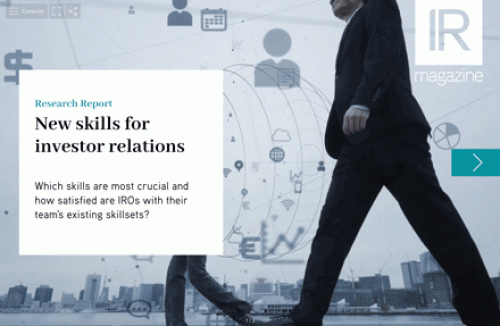In Hong Kong this month, people have been commemorating the 20th anniversary of the handover: on July 1, 1997, Hong Kong was returned to China, ending more than 150 years of British rule in the territory.
And across the region, another 20th anniversary was also being remembered: that of the onset of the Asian financial crisis. One day after Hong Kong’s handover, the Thai government stopped propping up the Thai baht against currency speculators, a move that triggered the crisis and brought years of fast-paced growth in the Asian Tiger economies crashing to an end. In more ways than one, 1997 proved to be the end of an era.
One notable outcome of the Asian crisis has been the growth of corporate governance in the region. ‘The severity of the event inspired a change that a mild recession may not have done,’ says Jason Pidcock, manager of the Jupiter Asian Income Fund, in a recent note. ‘Since then we have seen corporate governance and dividend payout ratios improve across the region. The average ratio has increased from 30 percent to 40 percent in 2001 and has remained around this level ever since.’
Another result has been the slow but steady growth of the investor relations function and profession across the region in the last two decades. Just seven years ago, few people in east Asia were familiar with the role of an IRO and the job was frequently confused with public relations.
In 2010 the Hong Kong Institute of Certified Public Accountants ran a story in its business magazine about the role. A former CFO at a Hong Kong-listed mainland property company told the magazine how shocked her friends were when she resigned to lead investor relations at another developer. ‘[They asked], Why are you downgrading yourself?’ she said. A fellow Hong Kong-based IRO said a common perception at the time was that IR was a short-term position required only until a company had listed.
In 2001 an IMF co-sponsored report by the Institute of International Finance looked at how to reduce the incidence and severity of financial crises in emerging markets. It specifically recommended promoting good IR practice: ‘As countries become more reliant on private capital flows they should adopt a more proactive stance by establishing a highly visible investor relations program.’
Today, the role of IR is well recognized across the region and some investors are optimistic the crisis has also resulted in better practices. In a note this month looking back at lessons learned since the downturn, Mark Mobius of Franklin Templeton Investments writes: ‘Many countries, companies and individuals in emerging markets learned the harsh lessons of the Asian financial crisis. Since then, many emerging markets have built up foreign reserves and reduced foreign debt loads in relation to gross domestic product. Because of this and other reasons, I think the outlook for emerging markets today looks very good.’
But there are no guarantees, he cautions: ‘Of course, such crises are part and parcel of a free capital markets system, and should be expected. No amount of government regulation and oversight can guarantee another market crisis won’t happen.’










